Bantry Bay is the first aboriginal rock engraving site near Sydney that Europeans visited in 1788. This is a large site with many interesting designs. This large panel shows a collection of shields and boomerangs.
This image shows a school of large fish.
This is an engraving of an emu track. These are fairly common at engraving sites and were used to lead the viewer from one set of images to the next.
These may represent the flukes of small whales or perhaps dolphin.
This image shows a 5 meter shark and a life sized figure.
This is an engraving of a small wallaby.
A large decorated shield.
There is a line of mundoes crossing the southern end of this site.
This very worn engraving shows a figure. The head and right arm have completely worn away.
This image shows an engraving of an eel.
This is another worn figure that seems to be making a pointing motion.
This very long and meandering engraving is probably a snake.
This image shows an engraving of an eel and some other interesting shapes.
This young echidna was nosing around while we were at the site.
This is a view looking across the bay showing Sydney CBD in the distance.
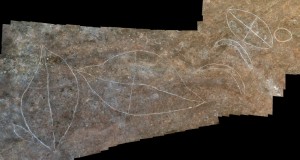

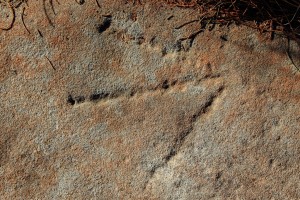
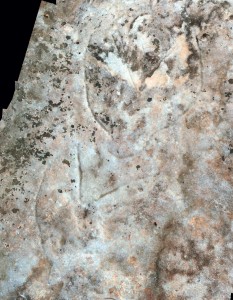

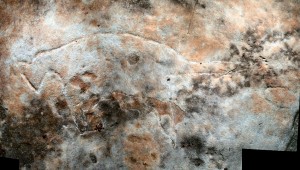
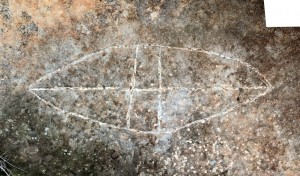
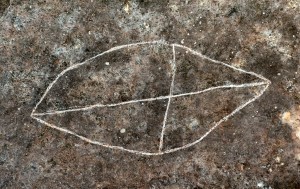
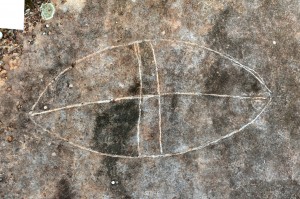
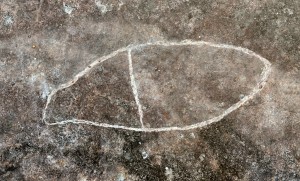
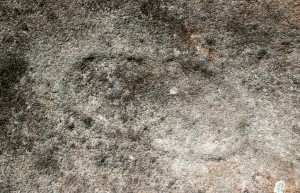
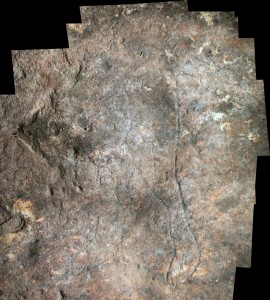
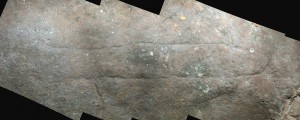
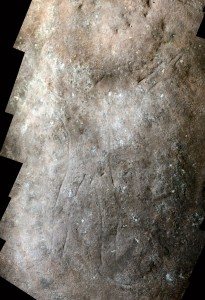

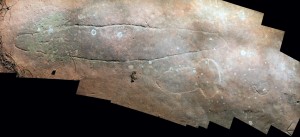
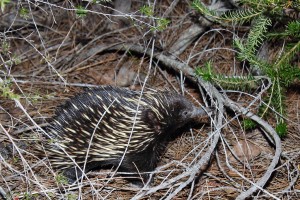
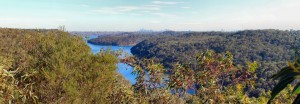
You missed the large figure of Baiame in the centre of the platform.
The Bantry Bay engraving site has a very extensive collection of interesting engravings. The large figure in the center of the main site is very eroded and difficult to image successfully. Sadly, this is the fate of many of these beautiful engravings.
I went through there with an aboriginal guide used a water bottle to trace out the shapes of the carvings. This made it very clear and didn’t damage the carvings.
Applying water to rock engravings is a very common way to enhance the images. Unfortunately, this will ultimately contribute to the inevitable chemical weathering that the rock naturally suffers. Chemical weathering undermines the structure of the rock which then becomes more susceptible to mechanical wear, causing the rock to crumble and flake away. Before European settlement the indigenous people would periodically attend and re-groove the engravings to overcome this type of problem.
I don’t know the Bantry Bay setting, but I actually wonder if the “emu track” shown above might not actually be a survey mark in this case ?
The emu track could be a survey mark, but survey marks are typically cut with a chisel and this engraving is pecked in a manner consistent with many other engravings.
I went to the engraving site near Bantry Bay. The site is fenced and hard to see. Are visitors allowed to cross over the fence as long as they take extra care not to damage engravings?? (The board just tells not to interfere in any way with these rock engravins or with any part of this site.)
Many people step through the wooden fence to visit the engravings but please be careful where you walk as many of the engravings are very worn and difficult to see.
Go for gizzold Maki, be a man, just step on in there and check out those bad boy carvings !!!
I grew up at French’s Forest & used to explore the bush land & carving site in the early 70s. Sadly alot of people have carved their initials into the sandstone.
There’s a relatively unknown site of carvings along Mona Vale Rd near Kimbriki tip also.